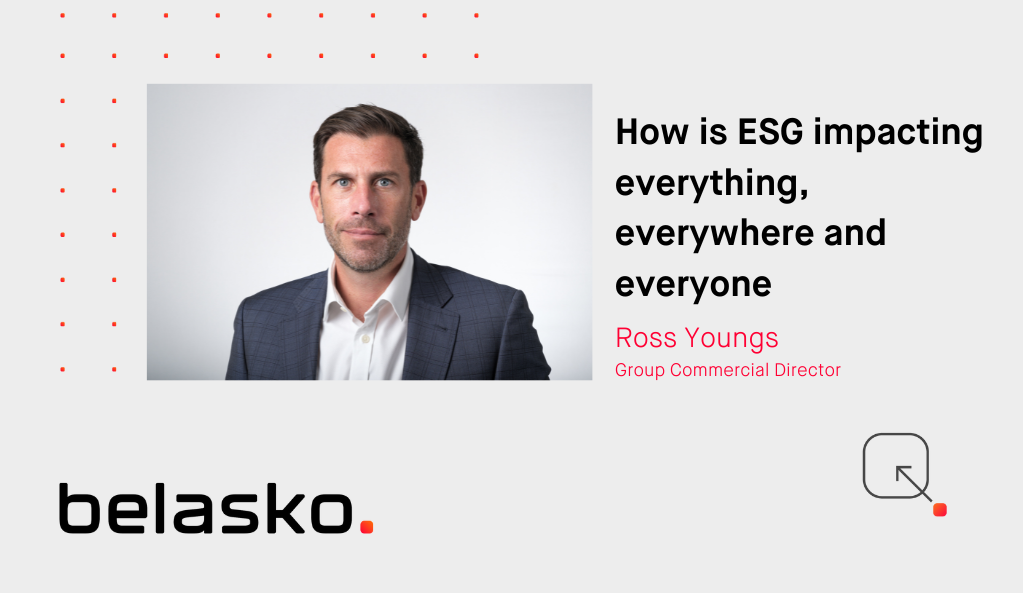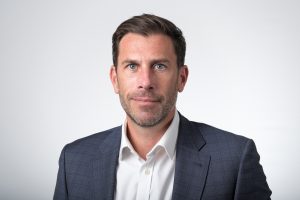
I would imagine that by now, ESG is close to being a better-known acronym than KYC in financial services. This is ultimately because ESG dominates news headlines on a daily basis and as a consequence, buyers of goods and services now differentiating where they allocate capital – seeking out businesses pushing to make a difference.
This means ESG or sustainable finance is becoming more than just ‘buzzwords’. Capital inflow into ESG-related funds more than doubled in 2021 compared to the previous year and analysts expect ESG AUM to reach c20% of Global AUM or $33.9trn by 2026 ($18.4trn 2021) according to PwC.
Ross Youngs, Chief Commercial Officer at Belasko, identifies how to navigate the rising waters, the impact on our clients and the business’ proactive approach to lead the way.
How are our clients impacted?
Our fund clients are impacted to varying degrees depending on their size and marketing plans. Many share our proactive approach and have, generally speaking, adopted two different routes depending on the level of regulation required. This includes:
- The Sustainable Finance Disclosure Regulation (SFDR).
- The Principles for Responsible Investing (PRI) : – Where SFDR has not been relevant, our clients have chosen voluntary compliance with the PRI. (The PRI is a set of ESG principles developed by investors to have a positive sustainable impact in the global financial system.)
Unpacking the SFDR
There are three levels of regulation applicable to funds marketed in Europe under the SFDR:
Article 9 covers funds that have a sustainable objective /outcome. They have strict requirements on how they achieve their goals. There has been a great deal of focus on this category of fund and as such, the burden of evidential reporting is very high. This has led to c40% or $175bn of article 9 funds reclassifying to article 8.
Article 8 is for funds that promote positive environment, social and governance characteristics but do not have those as their overarching objectives.
Meanwhile, article 6 is for funds that do not integrate any kind of sustainability into their investment.
These three levels of regulation can be considered stepping stones depending on where the business or fund is on its ESG journey.
How has ESG impacted Belasko?
The team and I at Belasko recognise that ESG has several positive impacts when successfully incorporated into business strategy. We are not required by regulation to report on sustainability however, we have chosen to partner with Terra Instinct to create a Responsible Business Policy.
We have dedicated resources to steward the implementation of our policy which requires a group-wide committee, the definition of sustainable metrics relevant to Belasko, measurement and target setting. This resource also includes an annual report for clients and investors on our sustainable journey.
I envisage that businesses like ours will soon have mandatory reporting on ESG areas in years to come. We deem it essential to be a leader in this area and will continue taking proactive efforts to stay ahead of the curve.
How can we help you?
No matter the complexity of compliance with the PRI or SFDR, there are common challenges with which we can assist.
- The first challenge is defining a policy of responsible investment. The policy must consider the fund’s impact on ESG factors and then set appropriate data points with which to measure and track positive impact according to the goals set.
- Data collection sounds easy, but it is not standardised across markets and countries so the sophistication and resource availability of portfolio companies to stream up the data sets can vary considerably. This is a major hurdle for our clients.
- Regulation and investor demand are evolving at pace. Our clients do not usually have internal resources to dedicate to ESG and therefore rely on Belasko to keep them advised as to what’s next and how to remain compliant.
Belasko has developed an end-to-end solution in partnership with Terra Instinct to power auditable data collection. It is helpful to have a specialist like Terra Instinct to define policy and collect, validate and where data is not available provide reasonable industry estimates. The benefit of having an advisory expert is of critical importance to ensure data quality, meaning it is auditable and reporting to investors (on which decisions are made) is accurate and reliable.
Doubts?
It should be clear by now that ESG is not going anywhere and there is a market expectation to consider sustainability in our personal and business lives. We must adopt positive impacting principles going forward.
If you would like to get ahead of the curve and prepare yourself for the ESG future, get in touch with Ross at [email protected].

